
Anthony Burns and the Fugitive Slave Act
Anthony Burns (1834–1866) escapes from slavery in Virginia, makes his way to Boston and finds a job in a clothing store operated by the abolitionist Lewis Hayden. Two months later while on his way home from work, Burns is seized by his owner under the authority of the Fugitive Slave Act.
Black and white abolitionists, led by Lewis Hayden and Worcester clergyman Thomas Wentworth Higginson, join forces to storm the courthouse in an attempt to free Burns. By the time order is restored, thirteen people have been arrested and one marshall has been killed. Boston is overflowing with federal troops and abolitionists. Burns goes to court, represented by Richard Henry Dana, Jr. and the African American attorney Robert Morris.
“…if what you all my friends did for Me could Not keep Me from coming Back into a Land of death it did Dow Sum good for My suffering wood have Ben ten hundre times gretter than it is. But I am yet Bound in Jail, and am waring my Chings [chains] Night and day… I am for sale… you can get me Low he would take $800 dollars for me….”
Listen
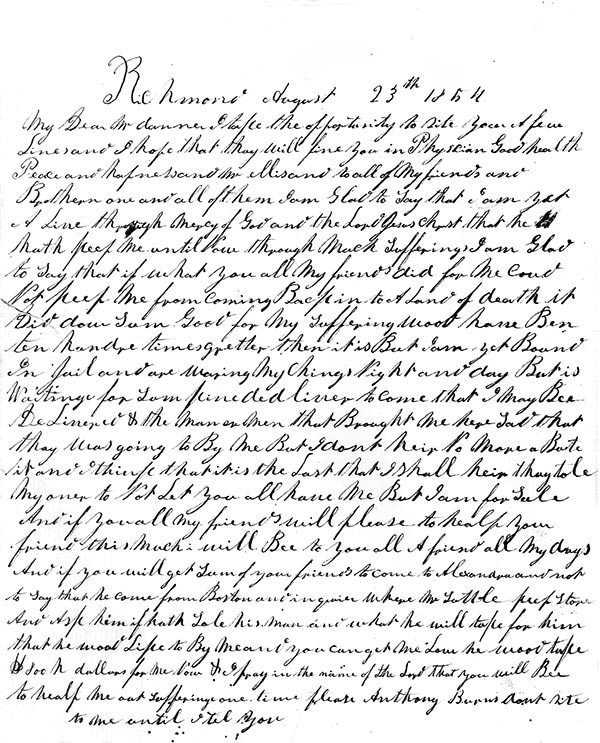
U.S. Commissioner Edward G. Loring rules in favor of Burns' master. Federal troops escort Burns to a ship to return to Virginia. Every street along the route is draped in black and flags hang upside-down. A huge coffin labeled Liberty is suspended across State Street. With 2,000 soldiers and Marines and, at a cost of $40,000, Anthony Burns was returned to slavery.
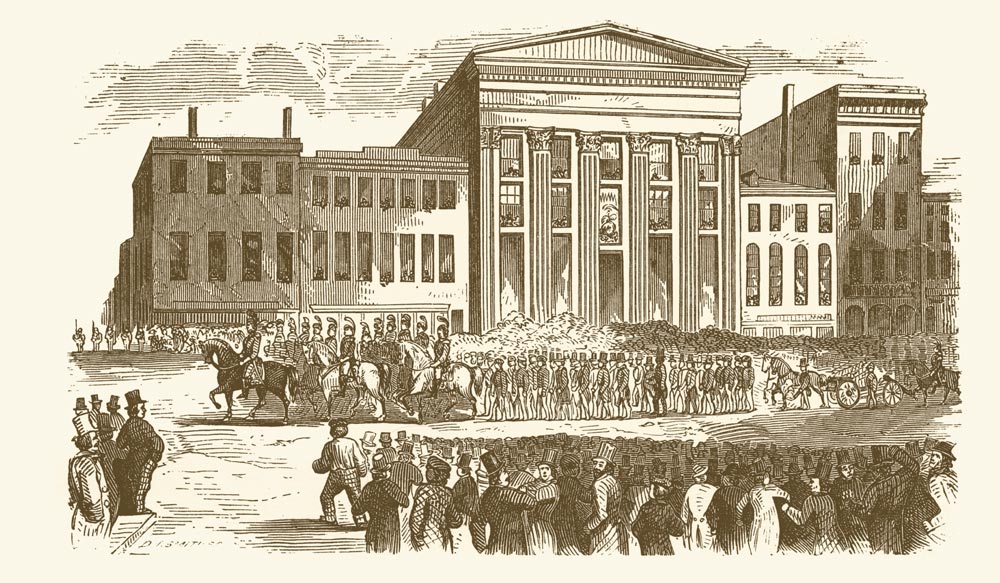
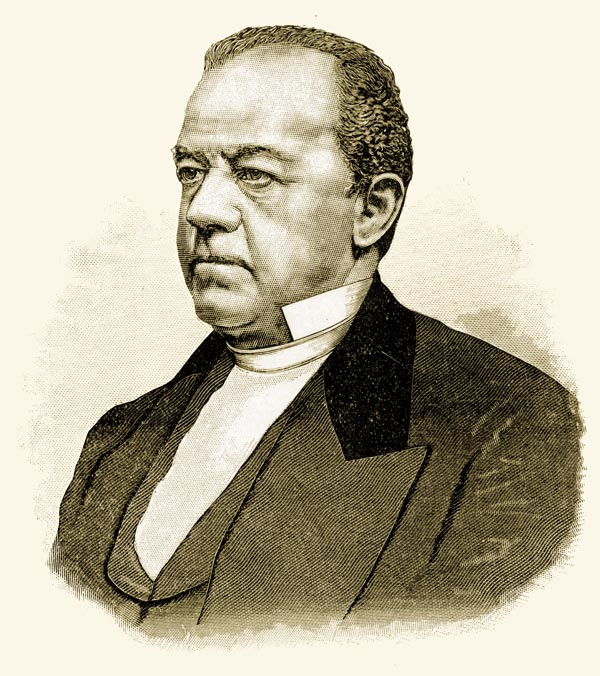
Reverend Leonard A. Grimes of Boston’s Twelfth Baptist Church led efforts to raise money for the purchase of Anthony Burns’ freedom. Acting through intermediaries, Grimes purchases Burns for $676, and Burns returns to Massachusetts a free man. Burns later studied at Oberlin College in Ohio, and became a minister in Canada.
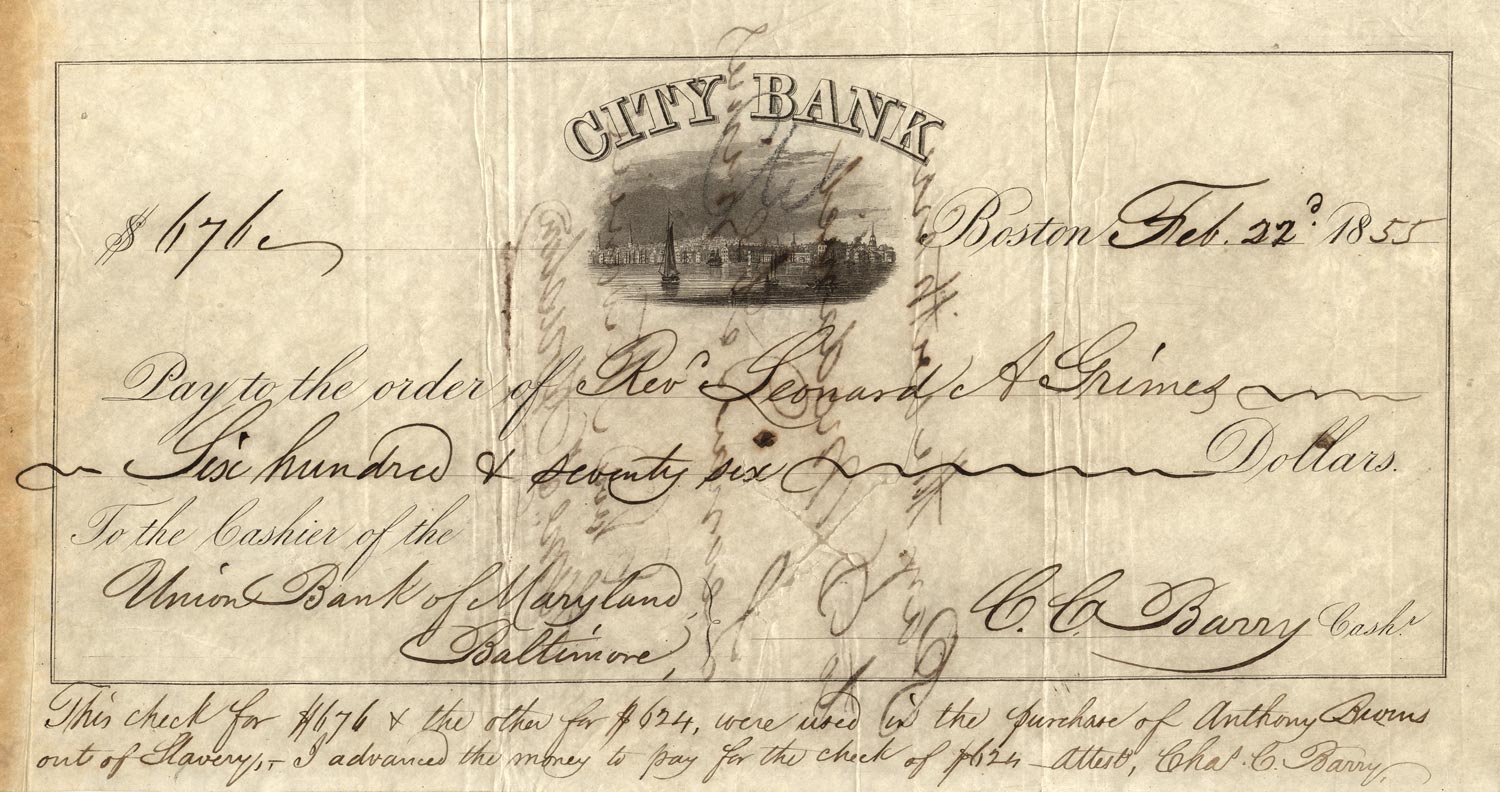
Letter from Anthony Burns
Listen
Richmond
August 23rd, 1854
My Dear Mr. Danner [Dana],
I take the opportunity to rite you a few lines and I hope they will fine you in Physician Good health. Peace and happiness Mr. Ellis and to all My friends and Brethren one and all of them I am Glad to say that I am yet alive through the Mercy of God and the Lord Jesus Christ that hath keep me until Now through Much Suffering.
I am Glad to say that if what you all my friends did for Me could Not keep Me from coming Back into a Land of death it did Dow Sum good for My suffering wood have Ben ten hundre times gretter than it is. But I am yet Bound in Jail, and am waring my Chings [chains] Night and day. But Is Waiting for sum kine dealiver [deliverer] to Come that I May be Delivered. The Man or men that Brought me here Sad that they was going to By me But I don’t heir No More a Boute it and I think that it is the Last I Shall heir. They tole my oner to Not Let you all have me But I am for Sale. And if you all my friends will please to healp your friend this much I will Bee to you all A friend all my days. And if you will get sum of your friends to come to Alexandra and not to say that he come from Boston and inquier where Mr. Suttle keep store And Ask him if hath sole his man and what he will take for him that he wood Like to By me And you can get me Low he wood take $800 dollars for me Now And I pray in the name of the Lord that you will Bee to healp me out suffering one time please.
Anthony Burns
Don’t rite to me until I tell you.
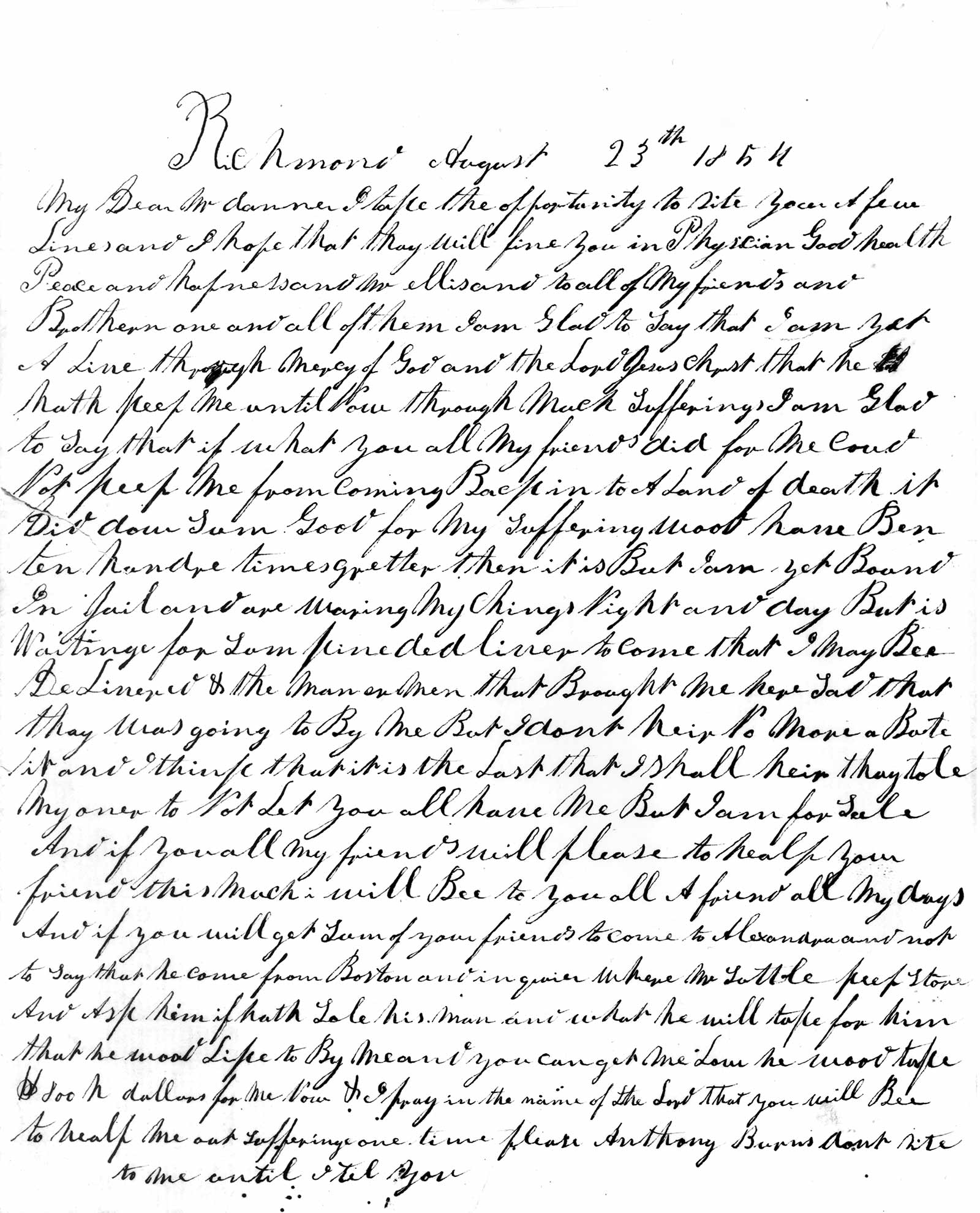

 Back
Back Print
Print